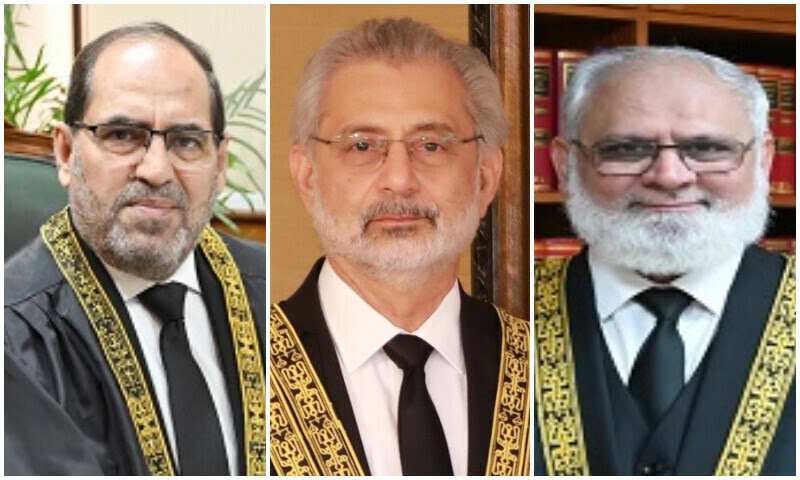Supreme Court Fixes Contempt Case Against Senator Faisal Vawda
The Supreme Court has scheduled a contempt proceedings case against independent Senator Faisal Vawda for May 17. The case will be heard by a three-member bench led by Chief Justice of Pakistan Qazi Faez Isa and comprising Justices Naeem Akhtar Afghan and Irfan Saadat Khan at 9am. The advocate on record will be Attorney General of Pakistan (AGP) Mansoor Awan.
Background:
The development follows Vawda’s questioning of judges about their allegation of interference in judicial matters by intelligence agencies. He stated that without evidence, no one had the right to raise a finger at institutions. This comes in the wake of a letter written by six Islamabad High Court (IHC) judges to the Supreme Judicial Council members, alleging attempts to pressure judges through abduction and torture of their relatives as well as secret surveillance inside their homes.
Senator Vawda’s Statements:
During a press conference at the National Press Club, Senator Vawda criticized the judiciary, stating that the country’s judicial history was not up to the mark and institutions should not be targeted. He called for an end to the trend of targeting institutions and questioned why Justice Babar Sattar had raised his voice “one year after the alleged interference,” urging IHC judges to come forward with evidence if they had any.
AGP’s Response:
In a Supreme Court hearing on changes to the country’s accountability laws, Justice Athar Minallah addressed the AGP, expressing concern over alleged threats to judges through proxies. The AGP responded by stating that Vawda’s press conference amounted to contempt and disavowed this action, stating, “We do not support this action.”
Conclusion:
The case against Senator Faisal Vawda highlights the complex relationship between the judiciary, intelligence agencies, and elected officials in Pakistan. The outcome of the contempt proceedings will be closely watched, as it has implications for freedom of speech and the independence of the judiciary in the country.
For more updates visit on my website.

